Taiwan concerned a returning Donald Trump might not help defend it
This democracy of 24 million is worried a Donald Trump victory may upend its long-held assumption that the US military will help defend it against any attack by China.
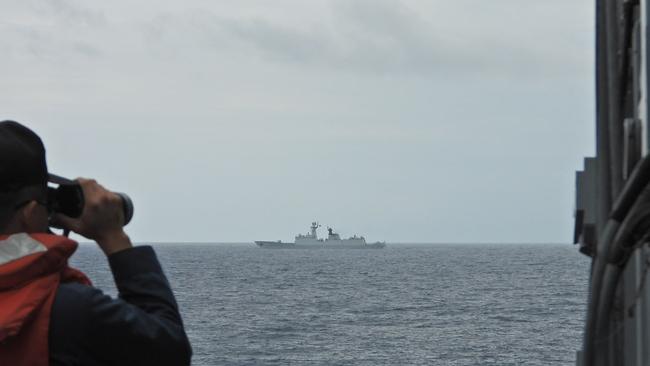
Taiwan has a Trump dilemma. As the US election nears, this democracy of 24 million is worried a Donald Trump victory may upend its long-held assumption that the US military will help defend it against any attack by China.
For now, officials in Taipei, at least publicly, are sticking to the line that whoever wins the US election, Trump or Kamala Harris, will not weaken America’s willingness to safeguard Taiwan’s security.
But Trump’s recent blunt criticism of Taiwan’s defence effort and its lucrative semiconductor industry has rattled Taipei, which would be utterly reliant on US military support to survive if Xi Jinping one day carried out his threats to “reunify” Taiwan with mainland China.
It has rekindled debate about whether the US would ultimately see Taiwan as strategically or economically important enough to go to war with China.
In July, Trump said Taiwan should pay the US for defending it against China.
“I think Taiwan should pay us for defence,” he said. “You know, we’re no different than an insurance company.”
Trump went further by taking another shot at Taiwan’s dominance in making advanced semiconductors, saying “they did take 100 per cent of our chip industry”.
Senior Taiwanese government officials and military and foreign policy experts interviewed by The Australian in Taipei are hopeful the Republican candidate’s comments represent Trump-style overblown rhetoric and do not signal a potential cooling of the US’s commitment to Taiwan’s security if he is elected.
But such experts are keenly aware that Trump was a transactional president whose commitment to alliances is unreliable at best and who is increasingly isolationist in his world view. Trump is openly sceptical of US military aid to Ukraine and as president would have to contend with the growing influence of the isolationist wing of the Republican Party.
The government in Taipei has been careful not to publicly criticise Trump’s comments, instead choosing to express gratitude for America’s ongoing political and military support while emphasising that Taiwan is spending more on its own defence than ever.
“We’re willing to shoulder more responsibility. This is us defending ourselves,” Taiwanese Premier Cho Jung-tai said in response to Trump’s comments.
“We have increased defence spending by 80 per cent from eight years ago,” Taiwan’s Foreign Minister, Lin Chia-lung, tells The Australian in an interview in Taipei’s Foreign Ministry. “And we are going to increase it further.”
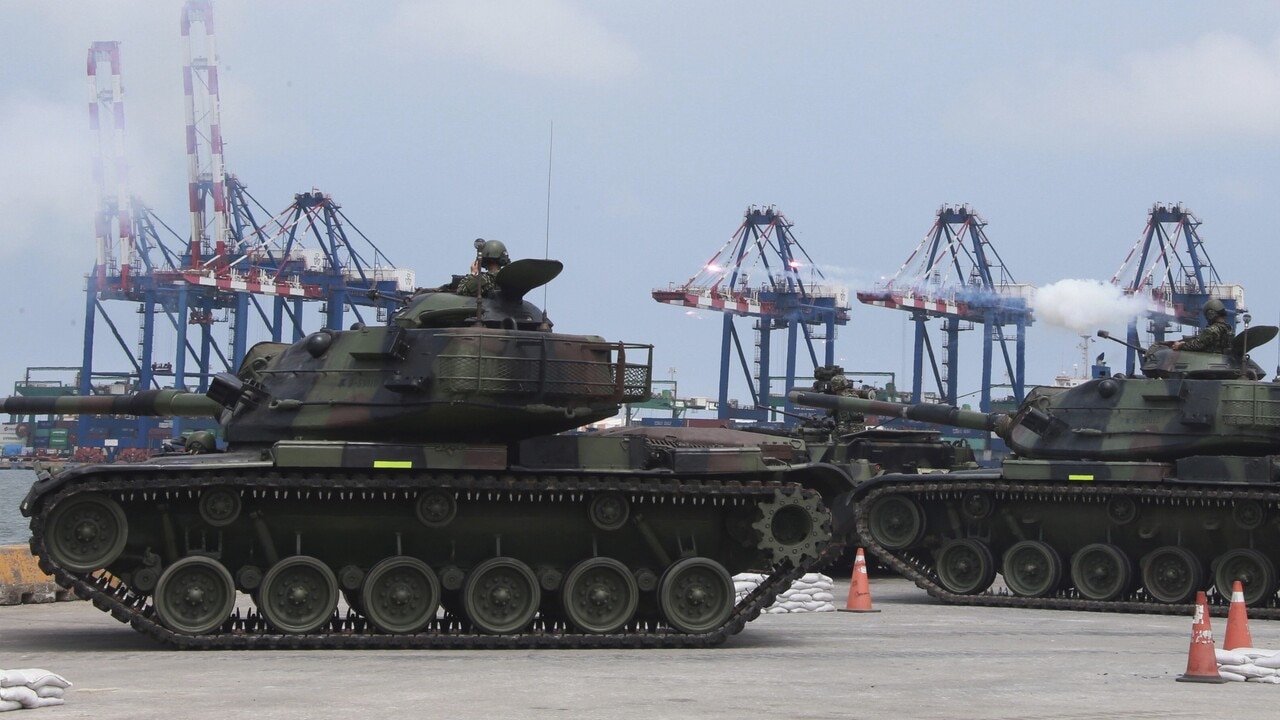
In August, Taiwan’s new President, Lai Ching-te, announced Taiwan’s defence budget would increase by 6 per cent in 2025 to about $US19.7bn ($28.4bn). This would lift Taiwan’s defence spending to 2.6 per cent of GDP, well above most members of NATO.
But would it be enough to satisfy Trump, who has also criticised the spending commitment of NATO’s members?
Taiwan has also recently increased its compulsory military service from four months to one year, and has moved to expand its reserve, civil defence and territorial defence capabilities.
But a US congressional report on Taiwan in August stated: “According to some observers, Taiwan’s civil defence preparedness is insufficient, and its military struggles to recruit, retain and train personnel. At a societal level, it is not clear what costs – in terms of economic security, physical safety and security, and lives – Taiwan’s people would be willing or able to bear in the face of PRC armed aggression.”
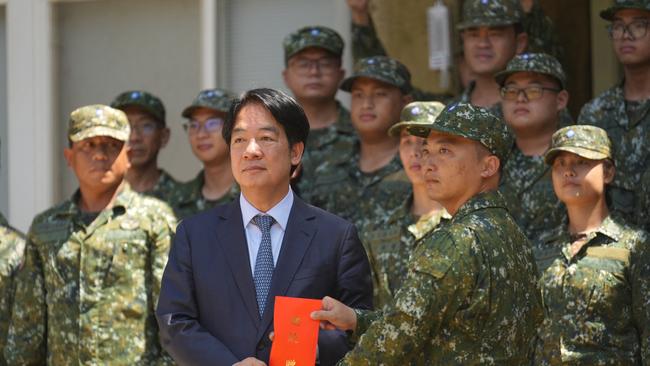
The Biden administration has beefed up its political and military support for Taiwan in the face of increasingly aggressive behaviour from China, which has stepped up so-called grey zone activities against the island.
It has authorised a record 15 military arms sale packages to Taiwan since 2021, including a $US360m package in June that included hundreds of armed drones and missile equipment.
Biden, by accident or design, also has stated several times that the US would help to defend Taiwan if it were attacked by China, blurring America’s traditional policy of “strategic ambiguity” about whether it would come to Taiwan’s aid. Harris has given no indication that she would deviate from the approach Biden has taken towards Taiwan but she has not detailed her policy towards the island.
Those in the Taiwanese government who hope Trump would not seek to weaken US commitment to Taiwan’s defence point to his record while he was president, when arms sales and security co-operation with Taiwan increased while several senior Trump administration officials also made symbolic visits there, angering Beijing.
In fact, in a survey of eight Asian nations in 2020, the Taiwanese were the only people to prefer Trump over Biden in that presidential election.
Trump’s vice-presidential running mate, JD Vance, who is an isolationist on US military aid to Ukraine, has proved to be an unlikely supporter of US military aid to Taiwan.
“The thing that we can control now is making it costly for them to invade Taiwan, and we’re not doing that because we’re sending all the damn weapons to Ukraine and not Taiwan,” Vance said recently.
Shan-son Kung, from Taipei’s leading military think-tank, the Institute for National Defence and Security Research, says close military links between Taiwan and the US would not wilt under a Trump presidency.
“Under Trump or the Democrats, we believe the US will keep increasing arms sales to Taiwan, including more modern weapons,” he says.
His colleague, Charles Wang, says even if Trump were personally more sceptical of US military support, the bipartisan pro-Taiwan stance of congress, the Pentagon and the State Department would make it difficult for Trump to change such bedrock policy.
“When it comes to a policy, it is not only the president – the institutions in the US government also have their own voice, which might persuade the president,” he says.
INDSR director Tzu-yun Su points out that the costs to a president Trump of helping deter China by providing substantial military aid to Taiwan are far cheaper than the “huge” price the US would pay to restore the strategic balance in the Indo-Pacific if Taiwan were to become “a Chinese Hawaii”.
“Taiwan faces challenging decisions in light of a potential return to the Trump presidency,” says Harun Ayanoglu, from the Taiwan Centre for Security Studies.
“On the one hand, Trump would likely maintain his anti-China policies, which Taiwan might benefit from. On the other hand, his anti-China stance might not automatically mean unwavering support for Taiwan.”
Although the Taiwanese government has been diplomatic about Trump’s comments, it has pushed back on his claim that Taiwan somehow stole America’s semiconductor industry.
“It’s not the fact that Taiwan has stolen technology from the United States,” Shien-quey Kao, the deputy minister of the National Development Council, tells The Australian, pointing out that Taiwan has nurtured and developed its now-dominant semiconductor industry in Taiwan with Taiwanese expertise.
“Taiwan and the US are good partners (in semiconductors), we are not competitors.”
The uncertainty in Taiwan about what a Trump presidency might look like for its security comes as China is steadily increasing its grey-zone operations against Taiwan.
These include ever-larger military exercises near Taiwan that for the first time are simulating an amphibious invasion of the island.
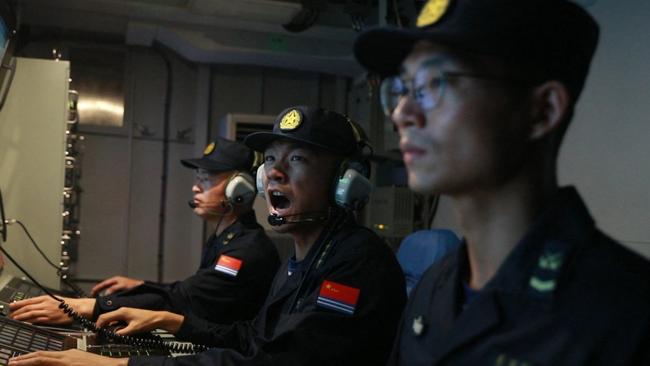
China’s navy, coastguard and air force now regularly cross on to the Taiwan side of the informal north-south median line in the middle of the Taiwan Strait, which was rarely crossed before 2022.
Foreign Minister Lin says that in addition to this increased Chinese military activity, China has stepped up its information warfare, cyber warfare and psychological warfare across Taiwanese society. “It’s like a salami-slicing strategy,” he says.
Most Taiwanese military experts believe Chinese President Xi has not deviated from his stated position, as disclosed by CIA director William Burns last year, that he wants the PLA “to be ready by 2027 to conduct a successful invasion” of Taiwan.
As Burns said at that time, “that does not mean that he’s decided to conduct an invasion in 2027 or any other year. But it’s a reminder of the seriousness of his focus and his ambition”.
Matt Pottinger, former deputy national security adviser under Trump, says: “Xi has described unification with Taiwan as a prerequisite for achieving his broader objectives for China on the world stage, a vision he calls ‘the Chinese dream for the great rejuvenation of the Chinese nation’ … the implication is hard to miss – Xi is equating a failure to subsume Taiwan with a failure to enact his overarching goals as Chinese leader.”
What has distinguished Xi from his predecessors over Taiwan has been his impatience but, while he says “reunification is inevitable”, he has publicly not given any clear hints as to when his promised campaign against Taiwan might begin.
Defence experts in Taiwan believe Russia’s ongoing failure to conquer its much smaller neighbour, Ukraine, may have given Xi second thoughts about any attack on Taiwan in the near future.
The INDSR’s Wang says the fact Taiwan is an island gives it a further advantage because China could move only a limited number of troops here.
“My view is that we would have about the same amount of troops (as China) because although they have a lot of manpower, they cannot move all that manpower over here,” he says.
However, military experts do not believe Taiwan could repel any significant assault by China without US help.
China’s agitation with Taiwan has only grown in recent months since the inauguration in May of President Lai, whom Beijing describes as a “dangerous separatist” who would bring “war and decline” to the island.
Xi punished Taiwan during the inauguration by ordering a blizzard of Chinese military activity around the island, including test-firing of weapons near the island.
But Xi’s obsession with taking Taiwan comes as Taiwanese society increasingly is moving away from China demographically, economically and culturally. Less than 3 per cent of its population now consider themselves primarily Chinese.
Two-thirds of Taiwanese now consider China a major threat and only 10 per cent of the population believe Beijing is not a threat.
Across the past two decades, Taiwan’s democracy has progressively strengthened to the point that the Economist Intelligence Unit ranks it as the world’s eighth-most “fully democratic” polity, ahead of every country in Asia and even the US and Britain.
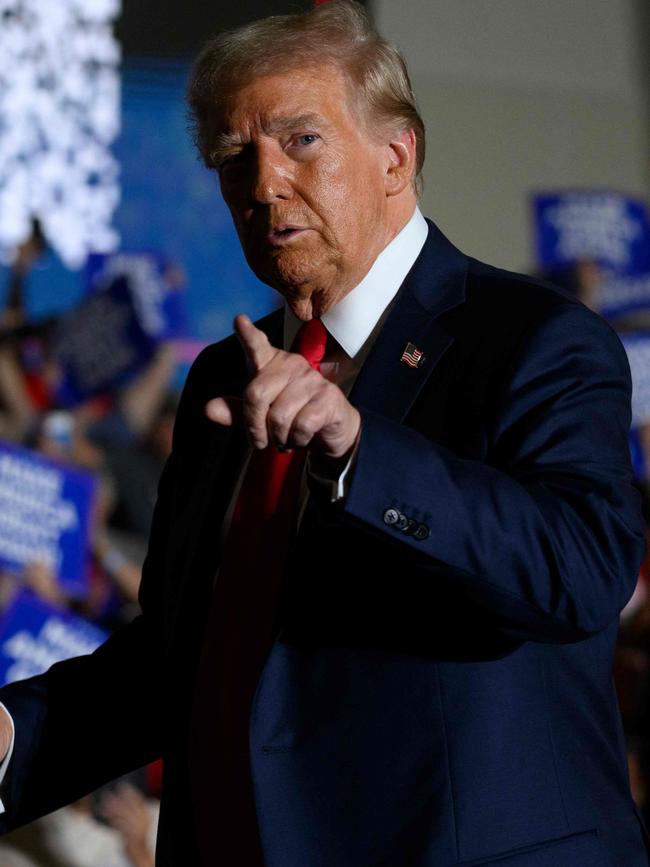
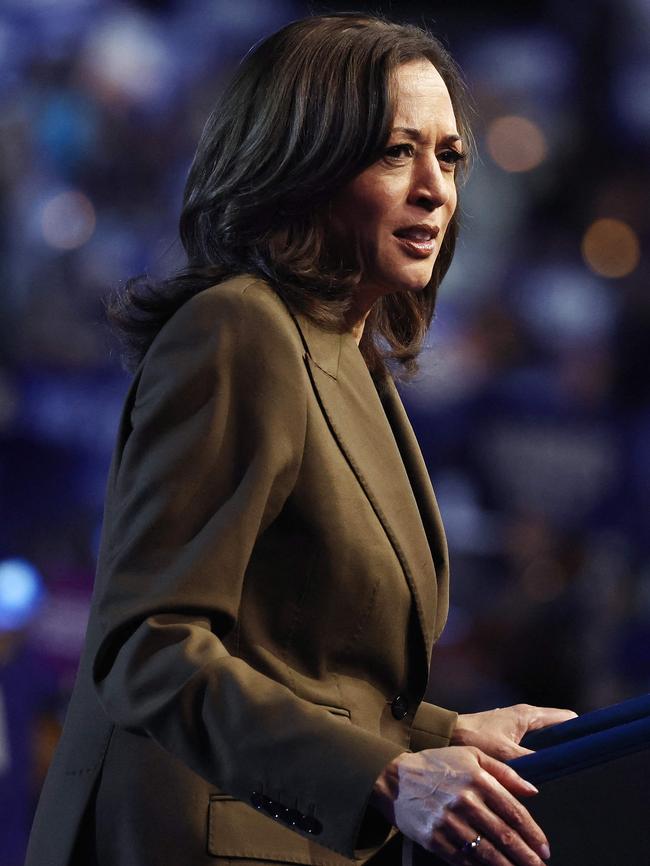
It has one of the lowest income disparities in the world, a higher per capita GDP than Japan and, according to the US, is the sixth-highest nation for gender equality, with women accounting for more than 40 per cent of Taiwan’s parliament. In short, Taiwan has flourished since it emerged from the authoritarian era of Chiang Kai-shek.
To safeguard its existence in the face of an increasingly belligerent Xi, Taiwan is stepping up its campaign to forge closer ties with those nations that are angered and unsettled by China’s rise.
It’s a campaign that is constantly stymied by China, which seeks to buy off smaller countries, especially in the Pacific and Africa, by rewarding the swapping of diplomatic recognition from Taiwan to China with seemingly lucrative trade and investment deals.
In August, China succeeded in stripping all references to Taiwan from the official communique issued after the Pacific Islands Forum summit in Tonga, despite the fact Taiwan has been a developmental partner with many Pacific Island nations since 1992.
Foreign Minister Lin says Taiwan has been pleased that as China’s belligerence towards Taiwan has grown, so too has the US presence in the Indo-Pacific alongside the development of regional security initiatives such as the AUKUS nuclear-powered submarine pact and the continued growth of the four-nation Quadrilateral Security Dialogue.
But the next important challenge for Taiwan will be a critical one: to persuade Trump or Harris beyond doubt that Taiwan is a cause worth fighting for. Xi will be watching closely.
Cameron Stewart travelled to Taiwan with the assistance of the Taiwan’s Ministry of Foreign Affairs.






To join the conversation, please log in. Don't have an account? Register
Join the conversation, you are commenting as Logout